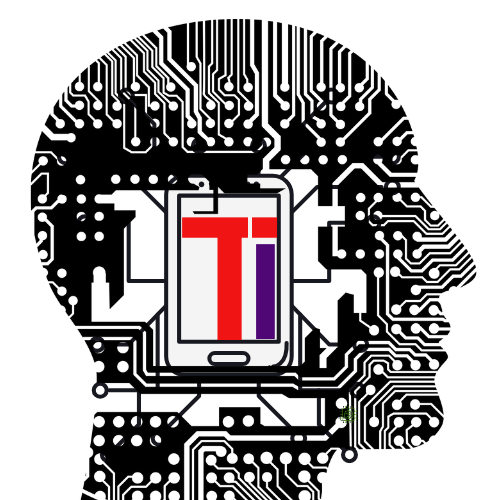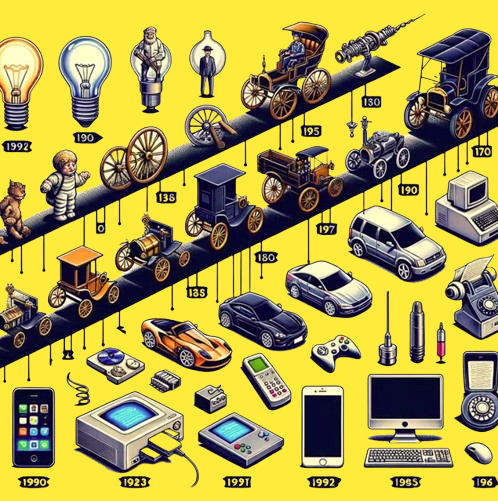Technology has existed for longer than humans. In this universe, technology predated humans. If we take the Big Bang Theory into account, we can also view the development of this planet as a type of technology.
The cycles of day and night, the orbit of the sun, the orbit of the moon, and the movement of other planets along their respective trajectories are all examples of systematically occurring phenomena.
A technological system governs the expanse of space, the appearance of light and darkness, the flow of water, and the motion of winds. What is the origin of all these stars, planets, galaxies, black holes, gases, smoke, clouds, rain, heat, and cold? These artifacts must have been made by someone.
How can a singularity point be subjected to a force that causes it to split apart and then change into the right shapes that allow for life? Nothing has ever been created that, when shattered, instantly continues rotating in a proper orbit and starts working there, for this doesn’t seem possible.
This is only feasible if it is subjected to an outside force and granted the ability to orbit and function inside a particular framework. I don’t believe that science can prove that the Big Bang Theory caused the cosmos to form on its own. Unless it was formed and guided by an outside source with great intelligence and strength, it seems unlikely.

In the Holy Quran, Surah Al-Anbiya (21:30) mentions
“Do not the disbelievers see that the heavens and the earth were joined together as one unit, then We split them apart?”
This verse directly points towards the Big Bang Theory, which describes the universe beginning from a dense singularity that expanded and spread out.
How is it conceivable, in accordance with the Big Bang Theory, that a force acts upon a singularity point, leading to an explosive event that subsequently expands and establishes stable orbits conducive to the emergence of life?
In what manner does this phenomenon facilitate the existence of water, light, and all essential elements necessary for survival? Furthermore, how does it culminate in a universe populated by diverse fauna, crops, and fruits that are suitable for sustaining life?
Can this happen purely by chance? Or does this suggest the presence of an intelligent Creator who designed and directed this process with precision?
There is certainly someone who created this universe in an organized manner, and that is Allah Almighty, who has adorned the universe with perfection.
In another verse, Surah (51:47), it is stated
“And We built the heavens with strength, and indeed, we are [continuously] expanding it.”
The universe’s constant expansion is a recent discovery in modern science, but the Quran disclosed these truths and the creation tale more than 1,500 years ago.
In another place, in Surah As-Sajdah (41:11-12)
The stages of the creation of the Earth and the heavens are mentioned, pointing towards the historical process of the universe’s formation. It is also stated that the heavens were created with precision, as described metaphorically as “layer upon layer,” signifying a purposeful and intricate design.
Technology’s Past History
Space was set aside for human habitation on Earth after the universe was created. Humans faced numerous difficulties when they initially came to this planet. In order to get around these challenges, people started creating inventions over time. They started the voyage of civilization by discovering fire, making tools, and developing vehicles.
Humanity joined the Industrial Revolution as centuries went by and human knowledge and reasoning developed. Significant advancements in manufacturing and machinery were developed during this time. Innovations in electrical communication, electricity, radios, telephones, and many other gadgets also started. Later, the development of mobile phones, computers, and the internet transformed human existence.
Prominent Muslim scientists like Ibn al-Hay them and Ibn Sine were among the several scientists who helped bring about these developments. Pioneering contributions by European scientists like Newton and Einstein resulted in a number of world-changing inventions.
Modern Technology
In several areas, such as technology, machine learning, cybersecurity, health, space exploration, digital marketing, and business, people have begun to advance quickly in the modern period. Everybody is trying to surpass everyone else in all of them, and one nation is doing more research than another in an effort to gain greater influence.
Because of this, there are variations in the atmosphere, which affect the weather, and the likelihood of the earth collapsing has significantly increased. The development of nuclear weapons by humans is among the riskiest kind of study. These pose a serious risk to the atmosphere as well.

Many individuals have approved of these advancements, some of which cause harm, but there are also other advantages that are evident.
Technology that is digital:
Human research in the modern period is concentrated on three areas: big data science, machine learning, and artificial intelligence. Data input, design, and research are just a few of the jobs that artificial intelligence may help humans with. But in the future, artificial intelligence will have a very bad effect on people.
Social networking and communication:
In the modern day, communication and social media are also crucial to human research. This allows a person to share a lot with those who live far away, converse on live video, and share their views and everyday lives on social media. However, there are many other forms of communication misuse, and some people abuse social media by utilizing films for things like blackmail.
Developments in Biotechnology and Medicine:
Among the many advances science has made in the realms of biotechnology and medicine is the application of artificial intelligence, which improves diagnostic prediction results by collaborating with machine learning. Treatment planning, radiology, X-ray, regenerative medicine, nanotechnology, digital health technology, and microtechnology are just a few of the fields that have seen innovations.
Traveling to Space
In 1958, NASA launched its first satellite into orbit, marking the beginning of its first space program. Nonetheless, the Quran stated more than 1500 years ago that people should look to the sky, study, seek knowledge, and notice the indications of God’s creation. Long before NASA launched its first satellite in 1958, the Quran called for this kind of investigation and study. This demonstrates that the Quran transcends science because it addressed these ideas earlier, whereas science is just now catching up. While science lags behind and is still catching up, the Quran discusses the future and life after the future.
Surah Al-Mulk, Ayah 3
“الَّذِي خَلَقَ سَبْعَ سَمَاوَاتٍ طِبَاقًا مَّا تَرَىٰ فِي خَلْقِ الرَّحْمَٰنِ مِنْ تَفَاوُتٍ فَارْجِعِ الْبَصَرَ هَلْ تَرَىٰ مِن فُطُورٍ”
(Surah Al-Mulk 67:3)
Translation:
“He (Allah) who created seven heavens in layers. You do not see any inconsistency in the creation of the Most Merciful. So look again, do you see any flaw?”
Surah Al-Ghashiyah, Ayah 18-20
“فِي سَمَاءِ جُهُودٍ وَمَنِ دَرَجَتْ”
(Surah Al-Ghashiyah 88:18-20)
Translation:
“Do they not look at the sky above them, how We have made it and adorned it, and how We have spread the earth?”
Technology’s Future
Although there is a lot of technology in the world today, it will grow a thousandfold in the future. It will only take a few minutes for humans to go from one location to another. Any thought a person has will be readily available to them. Road transportation will no longer be desirable once humans become so advanced that they conquer space. Mobile phones, laptops, and other devices that are integrated into the human body and whose operations are controlled by eye movements will be essential to human survival in the future.
AI and Robotics Technology
The greatest innovations of the future, robotics and artificial intelligence, may accomplish jobs that would typically take people a long period in a significantly shorter amount of time. There are drawbacks as well as benefits, such as the fact that the market will require fewer human workers to complete specific activities as robotics and artificial intelligence become more prevalent. Humans might have to change careers as a result, and their lifetime would shorten.
Nanotechnology as well as Mars The colonizers Innovation
By launching the first satellite into space in 1958 to look into the possibility of human life beyond Earth, humans started to explore space beyond Earth. This involved looking for potential human habitation sites on planets, stars, moons, galaxies, and black holes.
After landing on the moon, people started studying Mars. They began investigating the possibility of human habitation on other planets or stars, particularly in light of the idea that life could persist elsewhere in the event of difficulties or calamities on Earth. Given that nuclear weapons have been manufactured by humans and have the capacity to wipe out the entire planet at any moment, this is very crucial Consequently.
Humans must have another location to live in order to survive. Following this, people began to make progress in biotechnology, creating new crops for everyday use to fend off illnesses and guarantee improved living conditions.
Technology and the Holy Quran
The process started considerably earlier than the invention of the technology, which began in the 16th century. Nonetheless, the Quran was expressing certain definitions of science as early as 1500 years ago. The question remains however. what technological advancements and experiments did people make before to the Quran? Did they possess technology or astronomy? Although humanity will have technology in the future, what did the people of the past have?
What information will be available to future generations? Because the Quran outlines concepts that are only now becoming apparent in technology, this is a fact of existence that we cannot fully comprehend.
Future events are mentioned in the Quran. Why, therefore, did no one initially do study by looking at those items?
Conclusion
From the present era until now, humans have made significant progress, but in the 21st century, humans have achieved even greater advancements.
Books and References for Inspiration
- A Brief History of Time by Stephen Hawking.
- The Innovators by Walter Isaacson.
- Books on Muslim scientists, such as Lost Islamic History.
- The Holy Quran and related commentaries focusing on scientific references.

